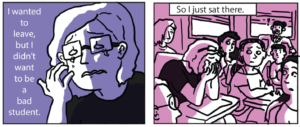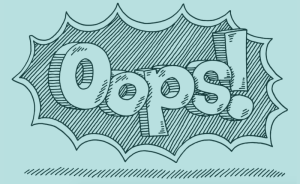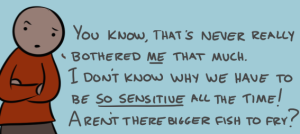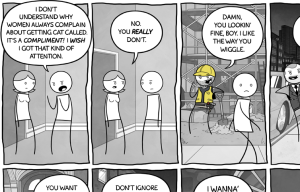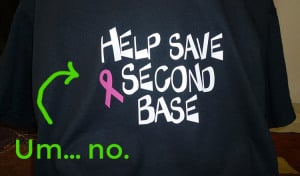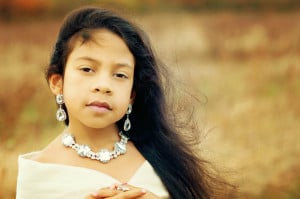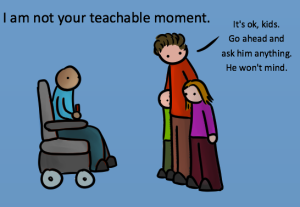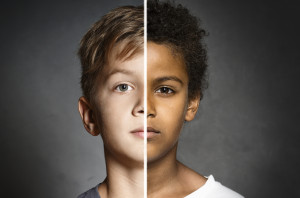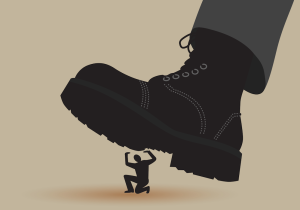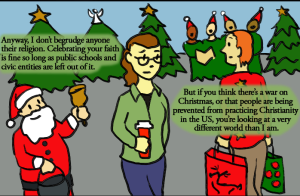Text: Op-Doc. A Conversation About Growing Up Black by Joe Brewster & Perri Peltz
Rakesh, age 10: Racism means basically lik …
Miles, age 13: A large part of a race feels that they’re superior to another races, and so not only do they believe that but they act on it.
Malik, age 17: Examples would be in class sometimes I’d be the only black kid. We’d read a book like, I don’t know, Huck Finn, and then there’s that uncomfortable moment, the magic word come up and people would look at you like “What’s his reaction?” Things like that.
Miles: I was walking home from school with one white girl and we’d just gotten off the bus. We were almost home, and there were these group of black kids that had just gotten out of school and she was like, “Oh let’s cross the street. There’s a group of black kids, I don’t want to run into them.” She told me, which I don’t even know why she would do that.
Marvin, age 23: I used to wear a sweat band to reinforce my wrist, and I had a teacher come up to me and say she’d take it off because it looks gang-affiliated.
Shaquille, age 22: I’ve been in situations where I had to cross the street because I didn’t want to scare the white lady that was walking.
Marvin: I would actually—it would get to the point where I would start to count how many times a woman would clutch her bag.
Bisa, age 17: When I was 16, I was leaving my mom’s house in my pajamas which had snowmen on them, with my brother. We were actually stopped by the police, rather aggressively.
Jumoke, age 17: I’ve been stopped by the cops on my way between classes, because we have two separate buildings, walking from one building to the other building, as my white students in the same class walked by me.
Malik: It’s kind of upsetting because we live in a world where my mom has to be afraid when I walk outside, from the people that are meant to protect me. And I don’t like when my mother feels like that. I love my mother. Should should always—I want her to always be happy.
Bisa: I walk tall, I keep my head up. Try to be very articulate and polite. Of course I was like, “I’m going to be fine because I act a certain way.” Of course that has absolutely nothing to do with it. The way people perceive you is not up to you.
Jumoke: My parents taught me “cops are your friends, you’re supposed to—they’re here to protect you.” But all I’m seeing is the opposite, so how can I not be afraid when I feel like I’m being hunted? When I feel like I’m there to fill a quota?
Shaquille: We are in a so-called “free society,” and as a black man, we literally don’t feel free. We don’t know what “freedom” is.
Jumoke: Every time we’re killed, the first thing you see on the news is, “Oh, criminal record,” or something like that. So from the second the bullet hits us, already we’re starting to be dehumanized.
Malik: With black people like myself, we don’t get as many chances as they do, so you have to be aware and you have to watch out and you can’t mess up.
Bisa: This was an extremely emotionally taxing process for me in terms of coming to terms with maybe the nature of racism in my own life and in this country and in this world. And if you wait until somebody’s twelve, thirteen, fourteen to put that on them, it can be really difficult.
Malik: My dad, he’s the honest one. He listens, and like, “There are things in this world you have to—you kind of have to watch out.” He doesn’t want me to live in fear, but he wants me to be aware.
Maddox, age 10: I want people to know that I’m perfectly fine and I’m not going to hurt anybody or do anything bad.
Rakesh: I should be judged about who I am and what kind of person I am.
Marvin: My parents would tell me, especially my mom, she would tell me, “You have to endure. You have the most authority.” And I’m like, this is no different. It’s a part of being a person of color in America.
Bisa: There’s a certain comfortability associated with that, because if I know that something is inevitable then I know how to deal with it. Fortunately, I’ve had parents who have said, “This is what you do.”
Marvin: Mom and Dad, I’ll be fine, because you did a good job raising me. You gave me all the resources and the time and the blood, sweat, and tears to make me a good man, an honorable man, and the foundation to survive in this country.
Myles, age 14: I want you to know that I will act in a appropriate manner and do everything that you told me to do, because I do love you and I know that everything you say is for a reason, and not just to talk to talk. And I love you.





